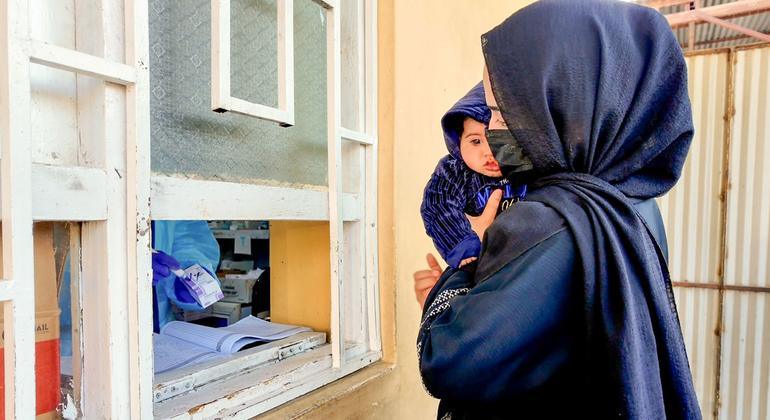Many women came to the clinic who had walked several hours to receive maternal care, some of them with their newborns and others very pregnant.
And then there were the health workers themselves, committed to serving those in need in the difficult areas of the impoverished nation of the Taliban.
‘Out of radar’
These were some of the scenes that are closely witnessed by Andrew Saberton, deputy executive director of the UN Reproductive Health Agency (UNFPA), on a mission to assess the impact of recent recent fund cuts.
“I saw and I understood the devastating impacts that the mass cuts in UNFPA will have in one of the world’s greatest humanitarian crises, A crisis that can be out of the radar of the news, but remains one of the world’s biggest crises“Mr. Saberton said to journalists in New York on Wednesday.
During his trip, the senior official visited unwanted services in Kabul, Bamyan and the border between Afghanistan and Pakistan.
I hoped to understand the difference that UNFPA is doing in Afghanistan while having a better idea of the impact of financing cuts.
Andrew Saberton (Second Right), Deputy Director of Administration of UNFPA, visits the Obstetric Fistula Chamber in Kabul, Afghanistan, where survivors receive attention.
Cut budget
The United States has recently announced cuts of approximately $ 330 million to UNFPA worldwide, of which $ 102 million will directly affect the work of UNFPA in Afghanistan, according to Mr. Saberton.
Most of this financing would have been used for the provision of family health and mobile care, which are essential in Afghanistan that already has one of the highest maternal mortality rates in the world.
This financing would also have been used to provide very necessary psychosocial support.
He estimates that 6.9 million women and children in Afghanistan will be affected by cuts. Besides, UNFPA can only support approximately 400 of the 900 current health clinics that supports Afghanistan, each of which provides attention to save lives.
Provide help with few resources
Despite these challenges, Saberton emphasized that the UNFPA will remain in Afghanistan and continue to provide attention to save lives.
“The UNFPA will stay to deliver, but we cannot maintain our response without help. We need urgent support to maintain these services and protect the dignity, health and life of Afghan women and newborns.“, Said.




